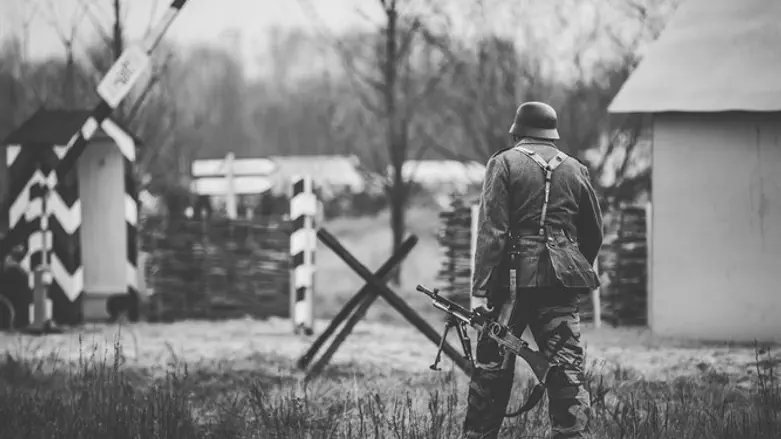
B’nai Brith Canada denounced Canada’s failure to deport Helmut Oberlander, a former translator for a Nazi death squad who died this week at age 97 after waging a years long legal fight to stay in the country.
“The peaceful demise of Helmut Oberlander on Canadian soil is a stain on our national conscience,” said B’nai Brith Canada CEO Michael Mostyn. “The fact is that this country slammed its doors on Jewish refugees fleeing the Nazis, then allowed some of their tormentors into Canada and failed to deport them.”
Earlier in the month, Oberlander’s lawyer sought to have his deportation hearing thrown out, arguing that the Canadian government withheld important information in the case for a decade that it had an obligation to disclose.
The Immigration and Refugee Board of Canada was holding a hearing on whether Oberlander would be allowed to stay in Canada or would be deported back to Germany.
Oberlander, born in Ukraine, was a member of a Nazi death squad that operated behind the German army's front line in the eastern occupied territories during World War II. It was part of a force responsible for killing more than two million people, most of them Jews.
Oberlander first served as a translator for Nazi death squads and later as an infantryman in the German army, according to 2018 court documents.
He said he was conscripted as a teenager, forced to join one of the Nazis’ “Einsatzkommando” mobile killing squads at the age of 17 and did not take part in any atrocities.
Oberlander lived in Waterloo, Ontario, arriving in Canada in 1954 and becoming a Canadian citizen six years later. He did not disclose his wartime experience when he applied to emigrate, upon entering Canada, or when seeking citizenship.
The Canadian government was reportedly aware of Oberlander’s hidden past as early as 1963. However, nothing was done until 1995 when the five-year process to revoke his citizenship began.
In 2000, Oberlander undertook a lengthy legal battle to stay in Canada. The case was still in process when he died.
In June 2017, the federal government revoked Oberlander’s Canadian citizenship for the fourth time.
Oberlander had been listed by the Simon Wiesenthal Center as one of the top ten most wanted Nazi war crimes suspects worldwide.
“We at B’nai Brith are proud of our decades-long fight on the Oberlander file, and will continue the struggle to ensure that those who have attacked Jews and lied about it in order to enter Canada cannot remain in this country,” Mostyn said.
David Matas, Senior Legal Counsel at B’nai Brith Canada, called the Canadian government’s inability to deport Oberlander a “sorry record.”
“The delays in these cases were unconscionable. The result was justice for victims of the crimes addressed in these cases was denied,” Matas said.
According to B’nai Brith, Oberlander is thought to have been the last known Nazi collaborator living in Canada.
